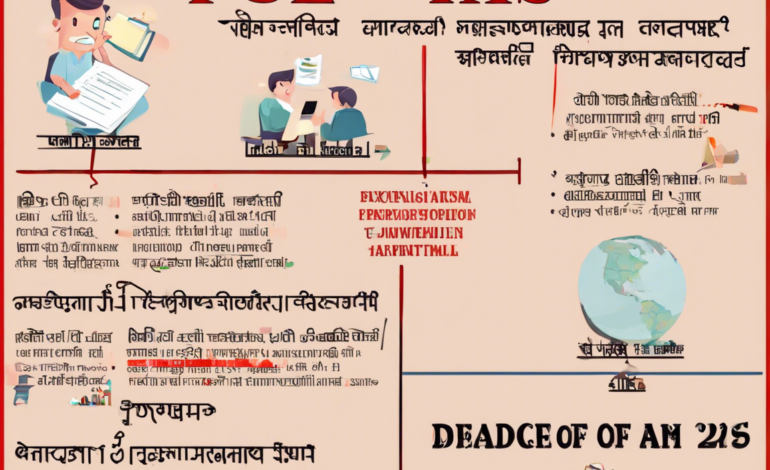
Exploring the Full Form of IAS: Decode the Acronym!
The Indian Administrative Service (IAS) is a coveted and prestigious career path in India that offers individuals the opportunity to serve the nation at the highest levels of the government. IAS officers play crucial roles in policymaking, governance, and administration, shaping the developmental landscape of the country. Aspirants who dream of making a difference in society often aim to crack the highly competitive civil services examination to become an IAS officer.
Understanding the Role of an IAS Officer
An IAS officer holds a variety of responsibilities that encompass the spectrum of governance in the country. Some key roles and duties of an IAS officer include:
1. Policy Formulation and Implementation
- IAS officers are responsible for formulating policies and implementing government programs at the grassroots level. They play a crucial role in translating government initiatives into actionable plans for effective implementation.
2. Administrative Leadership
- As the backbone of the Indian administrative system, IAS officers provide leadership in various administrative functions, ensuring the smooth functioning of government machinery at different levels.
3. District Administration
- IAS officers are often posted as District Magistrates or Collectors, where they oversee the administration of a district, including law and order, development projects, and welfare schemes.
4. Advising Ministers
- IAS officers serve as important advisors to ministers, offering valuable insights and recommendations on policy matters, governance issues, and administrative reforms.
5. Crisis Management
- During times of crisis, such as natural disasters or public emergencies, IAS officers are at the forefront, coordinating relief efforts, managing resources, and ensuring public safety.
The Journey to Becoming an IAS Officer
Becoming an IAS officer is a rigorous and challenging process that requires dedication, hard work, and perseverance. The journey typically involves the following stages:
1. Civil Services Examination (CSE)
- Aspiring IAS officers need to clear the Civil Services Examination conducted by the Union Public Service Commission (UPSC). The CSE consists of three stages: Preliminary Examination, Main Examination, and Personality Test (Interview).
2. Training at LBSNAA
- After clearing the CSE, candidates undergo training at the Lal Bahadur Shastri National Academy of Administration (LBSNAA) in Mussoorie. The training imparts the necessary skills and knowledge required for a career in the civil services.
3. Posting and Career Progression
- Upon completion of training, IAS officers are allotted a cadre and posted to various positions in the state or central government. They progress through different ranks and positions based on their performance and experience.
Benefits and Challenges of Being an IAS Officer
Benefits:
- Job Security: IAS officers enjoy job security and are protected by the constitutional framework.
- Social Impact: The role allows individuals to make a meaningful impact on society through policy formulation and implementation.
- Diverse Career Opportunities: IAS officers have the opportunity to work in diverse sectors and departments, gaining valuable experience.
Challenges:
- High Pressure: The job of an IAS officer comes with immense responsibilities and high-pressure situations.
- Political Interference: Dealing with political pressures and interference can be a challenge for some officers.
- Accountability: IAS officers are held accountable for their decisions and actions, which can sometimes lead to scrutiny and challenges.
Frequently Asked Questions (FAQs)
1. What is the eligibility criteria for appearing in the Civil Services Examination (CSE) for IAS?
- Candidates must hold a degree from a recognized university and meet the age criteria set by the UPSC. The specific eligibility conditions are mentioned in the official notification.
2. How many attempts are allowed for the CSE for IAS?
- General category candidates can attempt the exam six times, while there are relaxations for candidates belonging to other categories.
3. What is the salary structure of an IAS officer?
- The salary of an IAS officer is determined by the Pay Commission recommendations and varies based on the rank and years of service. It includes basic pay, allowances, and other benefits.
4. Can foreign-educated individuals apply for the IAS?
- Yes, candidates with foreign degrees recognized by the Association of Indian Universities are eligible to apply for the Civil Services Examination.
5. Is coaching necessary to crack the CSE for IAS?
- While coaching can be helpful for some candidates, it is not mandatory. Many candidates have successfully cleared the exam through self-study and meticulous preparation.
6. What is the retirement age of an IAS officer?
- The retirement age for IAS officers is generally 60 years, but it can vary based on the rules of the state or central government.
7. Can IAS officers be removed from service?
- Yes, IAS officers can be removed or suspended from service due to disciplinary actions, non-performance, or corruption charges as per the established rules and procedures.
8. Do IAS officers have to serve in rural areas?
- Yes, IAS officers are required to serve in both rural and urban areas during their career to gain a diverse experience of administration and governance.
9. Are IAS officers allowed to pursue higher education or research during their service?
- IAS officers can pursue higher education or research programs with prior permission from the government, subject to certain conditions and regulations.
10. How can I prepare for the interview stage of the Civil Services Examination (CSE)?
- The interview stage, also known as the Personality Test, requires a well-rounded preparation encompassing current affairs, communication skills, critical thinking, and a thorough understanding of one’s background and interests.
The journey to becoming an IAS officer is not just a career choice but a commitment to public service and nation-building. It requires individuals to possess a deep sense of responsibility, integrity, and a passion for driving positive change in society. By decoding the acronym IAS and understanding the intricacies of this esteemed service, aspiring civil servants can embark on a fulfilling and challenging career path that shapes the future of the nation.





